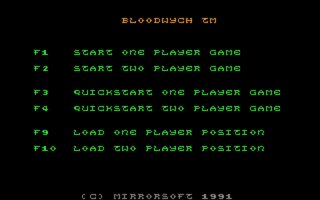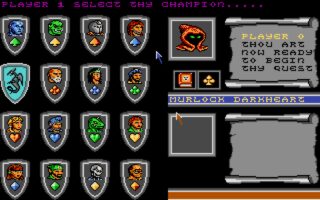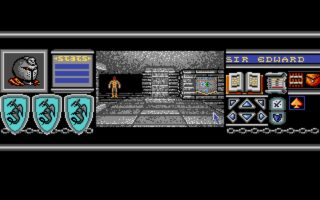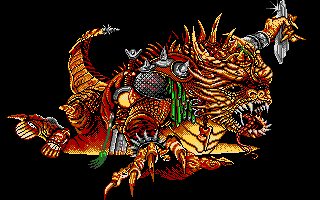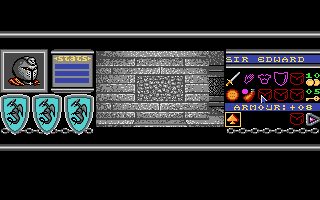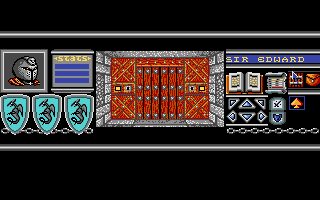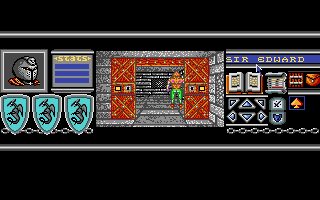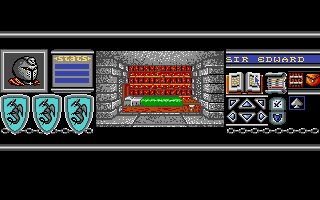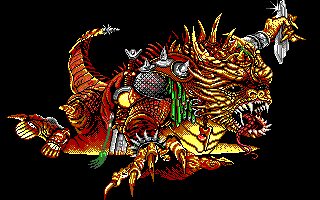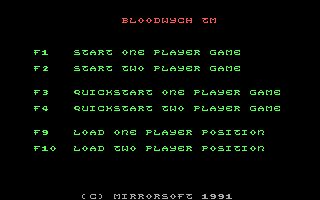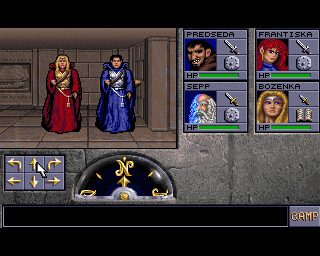Bloodwych is a first-person dungeon crawler role-playing game, developed for the Amiga and Atari ST in 1989 by Image Works. It was ported to MS-DOS, Commodore 64, and ZX Spectrum in 1990.
Bloodwych is a game that generates a lot of debate. On the one hand, there is the wing of gamers who argue that it is an underrated game, unique, special, and much better than its contemporaries. On the other hand, it is also criticized for being flat, slow, and an inferior copy of classics like Dungeon Master or Eye of the Beholder. Which of these two versions will be the right one? Stay reading the review, and maybe we'll find out.
Developers of the title were Anthony Taglione, Peter Owen-James, also know for Legend and Worlds of Legend: Son of the Empire, two games they created a few years after Bloodwych.
Let's quickly get the plot out of the way, which isn't very memorable, especially since it doesn't even try to be. As almost always, the protagonist is a hero who must put an end to evil. In this case, the villain on duty is the evil (obviously) Lord Zendick, and to defeat him, the protagonist must find three other heroes to accompany him.
With the gameplay, we see where the game shines the strongest. First of all, it is one of the few dungeon crawlers with a 2-players mode, which will split the screen in two for both players. Unfortunately, let's be honest, it's not so common to play this type of game with a friend in a co-op mode. If this is the case, and you will play this game alone, let me anticipate that you will miss the best part of it.
As for the heroes, the character uses the usual classics: a warrior, a mage, a thief, and an adventurer. Each of them has its own abilities and colors. Although it may seem redundant, the color will become important later in the adventure.
Bloodwych is one of the few games in which you can really say the puzzles are creative and challenging. Besides, each one has multiple solutions, which is very innovative for an RPG released in 1990. If you are playing with a friend, the 2 players can collaborate to solve the puzzles, which is a very nice touch.
Another unique feature is the ability to talk to merchants and negotiate prices. Did you think that this came out of Skyrim? Well, no dear, this has been implemented long before, and Bloodwych is one of the first games to do so.
With all this said, why are there detractors who even hate the game? First of all, as I said, if you play alone, it's just an average game. There are also some problems. For example, in single-player mode, the graphics only take up half the screen. But unlike Lotus Esprit Turbo Challenge, where the unused part is something nice to see, here the unused space is black. Additionally, the interface is very slow and requires a lot of clicking. If you're new to the game, by the time you've wasted your seconds casting a spell (and believe me, there are many), you'll probably have a sword buried in your head.
One might wonder why the game looks so bad, given that the Amiga's power is so much more. Most probably it was created initially for the Atari ST and then ported, that's why it doesn't use all the colors of the Amiga, but even on the ST, we have seen better. It gives the impression that it was developed for 8-bit computers and then ported. I guess the game creators knew that this adventure is aimed at people who enjoy gameplay more than graphics.
In fact, the limited animations and simple graphics have some cool side effects: in the whole adventure, you will hardly see a pause or loading screen. This was an advantage more in the 90s, ok, but still an impressive feat. Bloodwych also came out in other consoles and computers, but between us, don't waste your time; the Amiga version is the best.
So, despite some problems, I say it explicitly: Bloodwych is an excellent game. Although I'm a fan of analyzing colors and graphics, this game has to be evaluated for what it aspired to be: an excellent dungeon crawler and a fantastic RPG. Want to make your own judgment? Then play it! And if you can, get a friend, the experience will be much, much better.

